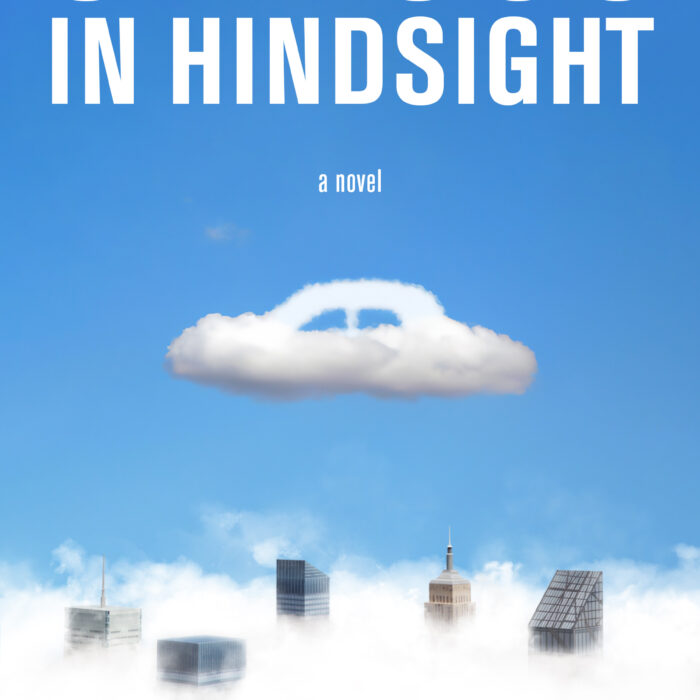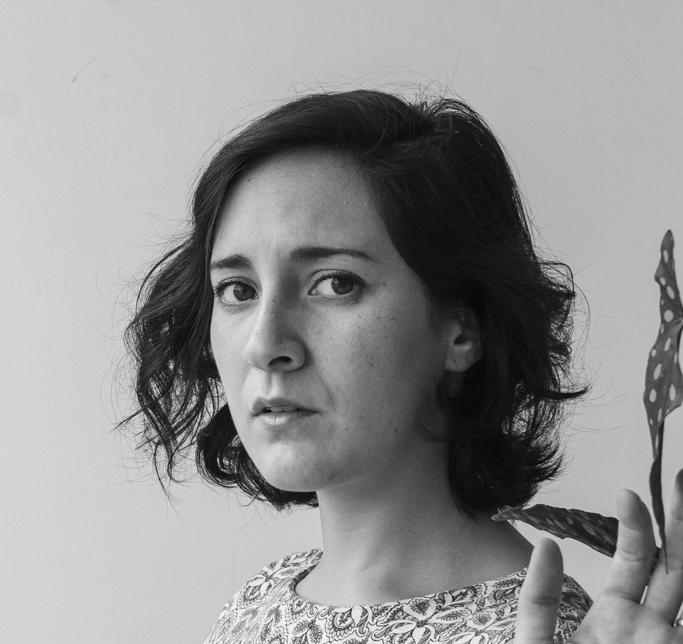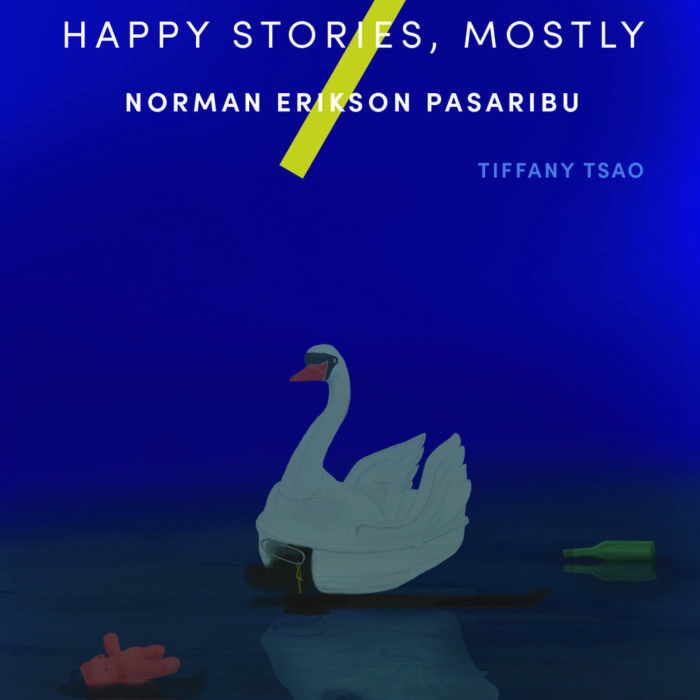You have no items in your cart. Want to get some nice things?
Go shopping
Nina Melero is a translator and writer. She teaches Spanish and Translation Studies at Kingston University and at the University of Westminster. Her publications include research articles on applied translation theory and literary translation as well as short stories, some of which have been awarded literary prizes (Art Nalon Letras 2007, Planeta Jóvenes Talentos 2005 and 2007). Tenebrario is her latest collection of short stories. Nina is currently completing her next book, Messiah 2.0, a cyberpunk novel about us humans and our relationship with the non-human.
Nina Melero has also been published in Litro. Read her story "Dirty Intentions".
Why do you choose to focus on genre writing and do you think it’s hard to get horror stories in front of mainstream readers?
Well, I wouldn’t say that I consciously decided to write a book of a certain genre. The process was different—I didn’t plan to write a horror book, but the stories which were born in me when I was writing the book happen to deal with topics which some people may associate with “horror”. All the stories are constructed upon the same idea: they present extraneous elements which suddenly invade our everyday life, intruding into our comfort zone and forcing us to remember how little we actually know and understand about the world. However, my aim when I was writing the stories was not so much to “scare” the reader, as to explore some of the topics that I personally found disturbing. And the only way to find out what I really feel and I think about them was to write these stories. To be honest I am not very sure how accurate it is to define all the stories in the book as “horror” stories, but I guess it makes it easier for future readers if we help them identify what they could possibly enjoy reading (or not) by trying to define the content of a book in general terms. And “horror” is certainly a very broad term.
I remember that Juan Rulfo, the Mexican writer, once said that one day he had gone to the library to look for a book he wanted to read, but he could not find it anywhere. So he decided to write it himself. I guess that is what happens to me sometimes—I try to write what I think I would like to read.
What does the genre of horror mean to you, personally? What frightens you?
I think that horror has traditionally been considered a “minor” genre, especially in Spain. Sometimes we seem to forget that horror is one of the oldest genres in the history of literature. The horror tale is as old as human thought, and it is present in the folkloric tradition of any culture, anywhere in the world, feeding on people’s natural fear of the inexplicable and the unknown—that which cannot be controlled. If you think of it, horror is an essential part of books such as the Greek Iliad or even the Bible. We also need to consider that the belief in the supernatural is the basis for any religion, so in a way it is a universal value. In general, I think that if we can define literature as the description of human passions, then the attraction and repulsion that fear provokes is not to be underestimated as a literary topic.
As for what scares me personally, well, I am sure your readers won’t have the time or the patience to read the whole list… (laughs). Because the list is long, from empty bathtubs to cats that stare at you for too long. There are lots of absurd things which scare me, which I guess is something positive, because I think that in order to write horror stories you need to be a bit of a “scaredy cat”. (Laughs.)
Not a lot of English readers will be familiar with Spanish horror fiction. Do you consider yourself to be writing inside our outside a Spanish (or other) horror tradition and if so, can you tell me about that tradition and those writers?
Well, Spain, unlike English-speaking countries, does not have a long tradition in horror literature. Nevertheless, in the last two decades there has been an unexpected emergence of the genre, especially in cinema. As you know, many of the latest Spanish films belong to the horror genre—The Others, Orphan, The Orphanage, REC, etc. The critics have labelled this current the “New Spanish Horror”. However, horror fiction in Spain is not a totally new phenomenon, and it is not only related to film. From the 80s there are many writers, such as Pilar Pedraza and Cristina Fernández Cubas, who have been regularly publishing modern horror fiction, and who have been received with enthusiasm by both the public and the critics. So, there is not a long tradition in this genre in Spanish, but I think it is increasingly becoming more popular among both readers and writers. I don’t know if my texts are related to what other Spanish authors write, but this current is something that I certainly find interesting.
Who are your literary influences (English/Spanish/other)?
It is difficult to say what authors have influenced my writing, and I think my readers will definitely be in a better position to answer that question. What I can tell you is which writers I do enjoy reading and which books have been important for me as a writer.
If I think of it, the three books which have impressed me the most happen to be short stories as well.
The first one is of course “Metamorphosis” by Franz Kafka, which tells the story of Gregor Samsa, who as you know turns into a giant insect overnight. That is probably one of the best stories I have ever read. I particularly like the way in which Kafka creates “monsterness” without describing anything. In “Metamorphosis”, the monster—the giant insect—is not described at all, only suggested, and it is rather the absurdity of the situation and how people react to it that makes the story a horror story.
The two other short stories which for me represent good writing and style are “Company” by Samuel Beckett and “The House of Asterion” by Argentinean writer Jorge Luis Borges, who wrote the story from the perspective of the Minotaur.
I read with interest about the significance of the “tenebrario” in Catholicism; “tenebrous” in English means dark and gloomy, shadowy. Do you see those qualities in your stories? Do you try to include light as well as darkness?
Yes, the word is related to darkness. As a matter of fact, “Tenebrarium” is the name of an object. It is a ritual candelabra used during Easter. It has many branches, and it is not the custom for the candles it holds to remain lit throughout the religious ceremony; instead the candles are put out in a rite to conjure up the darkness. I thought the name was suitable for the book because it provoked many interesting associations. The book is, however, not only about the darkness, but also about how we face up to it, about the candles we use to fight against the darkness. And as the readers may have noticed, most of the stories present characters that may be alone and very confused by the absurd situations they have to face up to, but they are not destroyed by the darkness—rather, they learn from it.
I’m fascinated by the final story in the book, “The Last Line”, partly because it plays around with metafictional ideas—a character in a story who is literally disappearing bit by bit—but also because it draws on the life and work of a very famous British writer, Saki (a.k.a. Hector Hugh Munro). I assume you’re a fan of his but how did you get the idea to write this story and is the piece a homage to Saki in style as well as content?
Yes, Saki is one of my favourite writers—an author I had been missing out on until relatively recently. Some years ago, when I was working at the University of Exeter, I visited a town called Exmouth and saw a plaque on a house which said, “Here lived the English writer Saki”. I didn’t know who he was, but grew curious about his name. Then I discovered one of his stories, “Sredni Vashtar”, and fell in love with his way of writing.
The idea for the story you mention, “The Last Line”, came to me while I was reading a book about his life, which explained how he was writing something when he was killed in a trench during World War I. He was having a rest with some fellow soldiers and someone was smoking a cigarette. It seems that according to some versions, his last words before he was shot were, “They are going to see us, put that bloody cigarette out!” and then a sniper shot him. So I kept fantasising about what he was writing at that moment (and wondering how someone could be writing in such a situation!) We will never know because his notebook was lost, so I decided to imagine the character he might have been writing and to create it myself. In my own story, “The Last Line”, I made that character interact with other characters Saki have actually wrote, the ones who were read and will never die because they were published and became famous.
What are you working on right now?
At the moment I am working on a novel about us, about humans, as an animal species. The novel is set in a threatening future time, when we suddenly cease to be the only species considering itself superior to others. I wanted to explore the topic of our relationship with the non-human. With non-human, I mean anything which is not us, be it an animal, or a creature of any kind. By imagining our species in a context where our identity as “rational, superior beings” is challenged, I came across many unsolved questions, and my way to address them was to try and write a novel about them. The title is Messiah 2.0, and I hope it will be ready soon.
This interview was conducted on Monday, 18 October, at the launch of Nina Melero's short story collection Tenebrario, available (currently in Spanish only) at The European Bookshop. To find out more about Nina and her work, please visit her website at www.ninamelero.com.

Emily Cleaver
Emily Cleaver is Litro's Online Editor. She is passionate about short stories and writes, reads and reviews them. Her own stories have been published in the London Lies anthology from Arachne Press, Paraxis, .Cent, The Mechanics’ Institute Review, One Eye Grey, and Smoke magazines, performed to audiences at Liars League, Stand Up Tragedy, WritLOUD, Tales of the Decongested and Spark London and broadcasted on Resonance FM and Pagan Radio. As a former manager of one of London’s oldest second-hand bookshops, she also blogs about old and obscure books. You can read her tiny true dramas about working in a secondhand bookshop at smallplays.com and see more of her writing at emilycleaver.net.





Nina ¡eres la mejor!